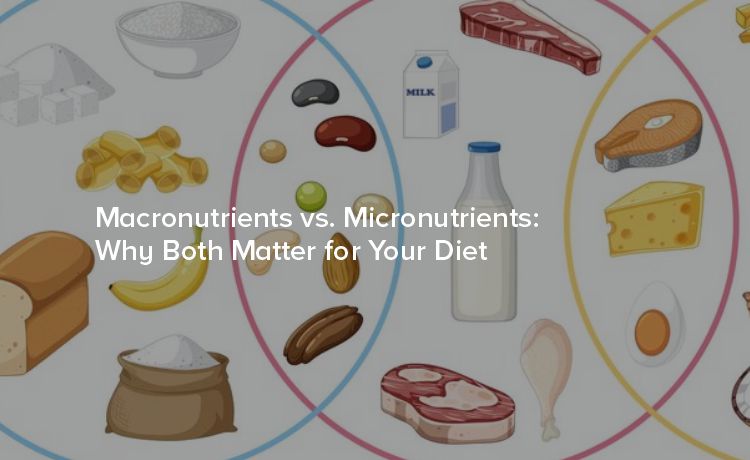
What’s the secret to a truly balanced diet? It’s not about cutting carbs entirely or consuming every trendy superfood you see on Instagram. Instead, it’s understanding the fundamental building blocks of nutrition – macronutrients and micronutrients.
Macronutrients (commonly called "macros") are the nutrients your body needs in large amounts to perform day-to-day functions. They supply energy (calories) and are the foundation of any diet. The three main macronutrients include:
Carbohydrates, or carbs, are your body’s primary energy source. When you eat carbs, your body breaks them down into glucose, which serves as its fuel. Bread, pasta, fruits, vegetables, and grains are all common sources of carbohydrates.
Why Carbs Matter:
Carbs have developed a bad reputation in recent years. However, not all carbs are created equal. Choosing complex carbs like whole grains and leafy greens over refined sugars can be a game-changer.
Proteins are responsible for building and repairing tissues, making them vital for muscle maintenance and cell health. They also serve as the building blocks for enzymes, hormones, and other crucial compounds.
Foods like poultry, fish, beans, legumes, tofu, and eggs are rich sources of protein.
Why Protein Matters:
Fun fact - The amino acids in protein are also critical for creating new cells and healing wounds.
While many people shy away from fats due to calorie concerns, healthy fats play a vital role in your body’s function. They help absorb key vitamins (we’ll cover those shortly) and support brain health, among a range of other tasks.
Sources of healthy fats include avocado, nuts, seeds, fish, and olive oil.
Why Fats Matter:
The key is differentiating between healthy unsaturated fats and unhealthy trans fats often found in processed foods.
Unlike macronutrients, micronutrients are nutrients your body needs in smaller amounts. Don’t be fooled by the term “micro,” though – their importance is anything but small. Micronutrients include vitamins and minerals, and together, they perform hundreds of roles in the body.
Vitamins
Vitamins help with everything from bolstering your immune system to strengthening bones and improving vision. There are two main types of vitamins:
Common food sources:
Minerals
Essential minerals, like calcium, potassium, and iron, contribute to healthy bones, nerve function, and oxygen transport in the blood. They’re the behind-the-scenes workers that keep bodily processes humming smoothly.
Common food sources:
Micronutrient deficiencies can lead to significant health challenges. For example, insufficient iron can lead to anaemia, while a lack of calcium can weaken bones over time.
Here’s a quick summary to highlight the main differences between macronutrients and micronutrients:
Both groups work together. For example, dietary fat (a macronutrient) helps the body absorb fat-soluble vitamins like Vitamin E (a micronutrient).
While macronutrients provide the energy you need to stay active, micronutrients ensure that your body runs efficiently. They complement each other. Too often, people focus solely on macronutrients while unintentionally overlooking their daily intake of essential vitamins and minerals. Here's why balance matters:
Balancing macronutrients and micronutrients doesn’t require an advanced science degree! Here’s how you can ensure your diet incorporates both effectively:
Fill your plate with a rainbow of fruits and vegetables. Each colour often represents different micronutrients (e.g., orange foods are rich in Vitamin A).
Whole, unprocessed foods like grains, nuts, fresh produce, and lean meats naturally offer both macro and micronutrients.
For example, following guidelines like the "plate method" ensures your meals have balanced portions of carbs, proteins, and fats.
Identify any gaps in your diet. If you have dietary restrictions (e.g., you're vegan), consider supplements, but consult a healthcare professional first.
While water isn’t classified as a macronutrient or micronutrient, it helps your body metabolise food and absorb nutrients effectively.
Achieving the right balance between macronutrients and micronutrients is the key to good health. Understanding the role these building blocks play makes it easier to craft meals that are both delicious and nourishing.